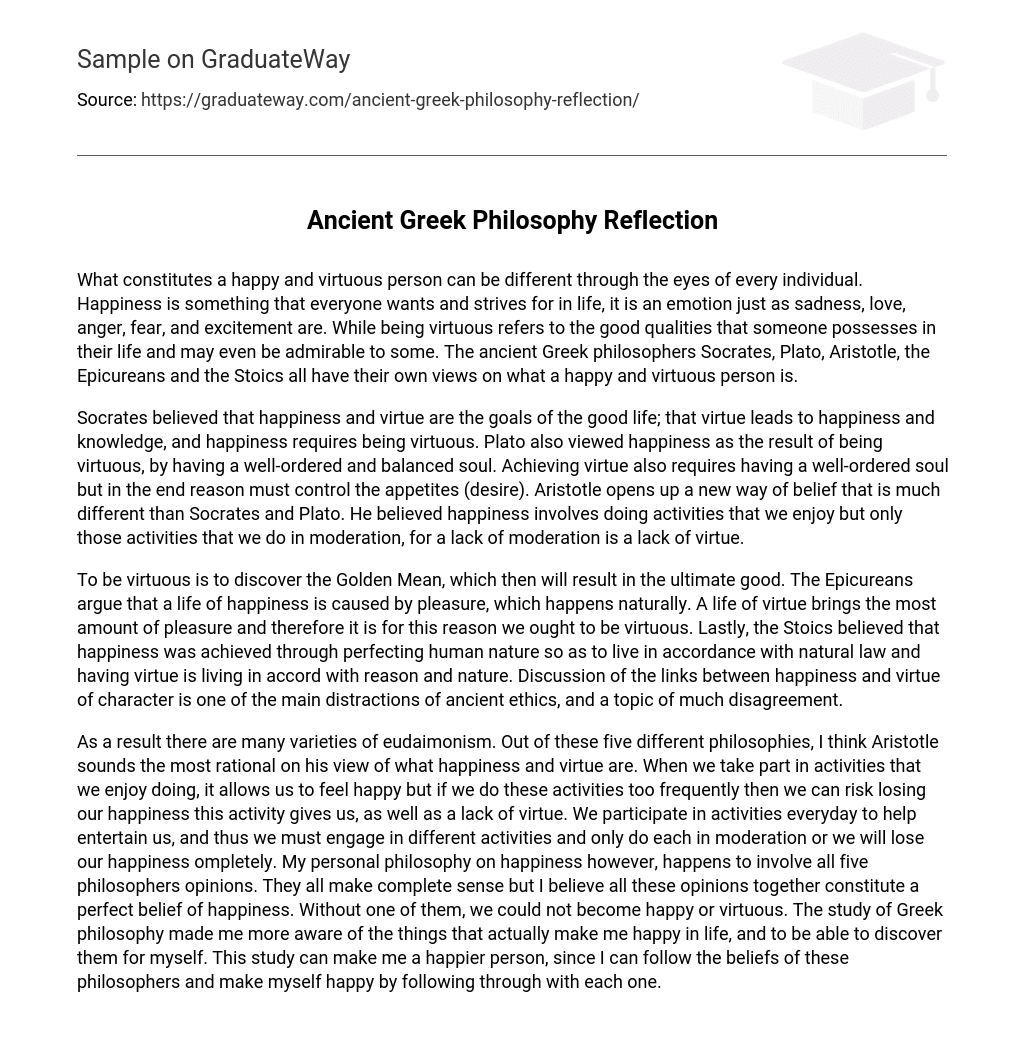What constitutes a happy and virtuous person can be different through the eyes of every individual. Happiness is something that everyone wants and strives for in life, it is an emotion just as sadness, love, anger, fear, and excitement are. While being virtuous refers to the good qualities that someone possesses in their life and may even be admirable to some. The ancient Greek philosophers Socrates, Plato, Aristotle, the Epicureans and the Stoics all have their own views on what a happy and virtuous person is.
Socrates believed that happiness and virtue are the goals of the good life; that virtue leads to happiness and knowledge, and happiness requires being virtuous. Plato also viewed happiness as the result of being virtuous, by having a well-ordered and balanced soul. Achieving virtue also requires having a well-ordered soul but in the end reason must control the appetites (desire). Aristotle opens up a new way of belief that is much different than Socrates and Plato. He believed happiness involves doing activities that we enjoy but only those activities that we do in moderation, for a lack of moderation is a lack of virtue.
To be virtuous is to discover the Golden Mean, which then will result in the ultimate good. The Epicureans argue that a life of happiness is caused by pleasure, which happens naturally. A life of virtue brings the most amount of pleasure and therefore it is for this reason we ought to be virtuous. Lastly, the Stoics believed that happiness was achieved through perfecting human nature so as to live in accordance with natural law and having virtue is living in accord with reason and nature. Discussion of the links between happiness and virtue of character is one of the main distractions of ancient ethics, and a topic of much disagreement.
As a result there are many varieties of eudaimonism. Out of these five different philosophies, I think Aristotle sounds the most rational on his view of what happiness and virtue are. When we take part in activities that we enjoy doing, it allows us to feel happy but if we do these activities too frequently then we can risk losing our happiness this activity gives us, as well as a lack of virtue. We participate in activities everyday to help entertain us, and thus we must engage in different activities and only do each in moderation or we will lose our happiness ompletely. My personal philosophy on happiness however, happens to involve all five philosophers opinions. They all make complete sense but I believe all these opinions together constitute a perfect belief of happiness. Without one of them, we could not become happy or virtuous. The study of Greek philosophy made me more aware of the things that actually make me happy in life, and to be able to discover them for myself. This study can make me a happier person, since I can follow the beliefs of these philosophers and make myself happy by following through with each one.





